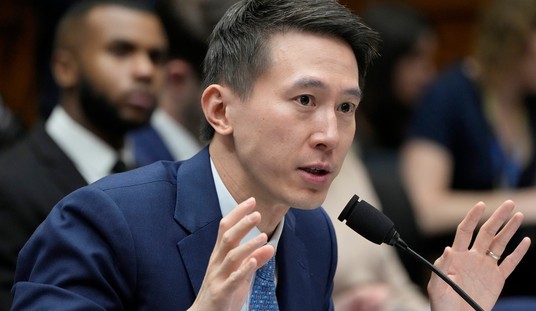So far, the only two facts we know about defeating ISIS is that the US strategy hasn’t worked, but the Kurdish Peshmerga can do it if they get the resources. Kurdish forces have been resilient, motivated, and effective, while the Iraqi army has all but collapsed when confronted, even by vastly inferior numbers. The US refuses to directly arm the Peshmerga, however, in an attempt to hold Iraq together as a political entity, insisting that all aid must go through Baghdad and the Shi’ite majority that might have plenty of reason to fear an independent Kurdistan in the north.
Barack Obama may have taken that one step further. According to the British newspaper The Telegraph, the Obama administration pressured Arab allies out of directly arming the Kurds with the heavy weapons they need to go on offense (via Instapundit):
The United States has blocked attempts by its Middle East allies to fly heavy weapons directly to the Kurds fighting Islamic State jihadists in Iraq, The Telegraph has learnt.
Some of America’s closest allies say President Barack Obama and other Western leaders, including David Cameron, are failing to show strategic leadership over the world’s gravest security crisis for decades.
They now say they are willing to “go it alone” in supplying heavy weapons to the Kurds, even if means defying the Iraqi authorities and their American backers, who demand all weapons be channelled through Baghdad.
High level officials from Gulf and other states have told this newspaper that all attempts to persuade Mr Obama of the need to arm the Kurds directly as part of more vigorous plans to take on Islamic State of Iraq and the Levant (Isil) have failed. The Senate voted down one attempt by supporters of the Kurdish cause last month.
Presumably, both Obama and Cameron are responding to the government in Baghdad as well as the Turks, who hardly want a heavily armed Kurdish army on their doorstep. The geopolitical reasons for this decision are not difficult to suss out. To fight ISIS in any meaningful way, the US will need some cooperation from both governments.
However, that only goes so far, and some of those concerns extend far beyond the crisis and run counter to US interests anyway. The Turks want to suppress the Kurds and depose Bashar al-Assad in Syria, so ISIS has been a tertiary concern for them — and they’ve facilitated recruitment for ISIS, wittingly or not. Iraq’s Shi’ite majority wanted to impose a sectarian autocracy on the Sunnis and the Kurds, control the oil wealth, and cozy up to their co-religionists in Iran. The only effective forces it has fielded are Shi’ite militias connected directly or indirectly to Tehran, which now are being pressed into service in Sunni tribal areas. The new Iraqi Prime Minister, Haider al-Abadi, has taken steps to curtail the Shi’ite power plays of his predecessor Nouri al-Maliki, but it’s clear that he’s not going to last long if he brings Sunni and Kurdish leaders into a true power-sharing relationship.
If the US is serious about fighting ISIS with Obama’s stated goal of “degrading and ultimately destroying” the genocidal Islamist army, we have three options. We can send in our own troops to fight the war, perhaps along with other Western and Arab allies, which would take at least 200,000 troops for an indefinite period of time, which Obama refuses to do and which might not get much support for very long from American voters. We can push our Sunni Arab allies to put together their own expeditionary force of a similar number, which they’re not inclined to do, either. Or we can directly arm and support the Peshmerga, who actually win against ISIS when they have the resources to do so.
That’s it. Those are all of the realistic options on the table for degrading and destroying ISIS. If we’re not doing any of those, then we’re simply not being serious about the mission that we have expressly and explicitly laid out in public. It’s akin to walking away from another red line and makes us look both foolish and incompetent.
That’s why support for ISIS keeps rising in the Arab world. They’re looking to the strong horse, and ISIS’ humiliation of the West and the US in particular gives them a huge pool from which to recruit for even more success:








Join the conversation as a VIP Member